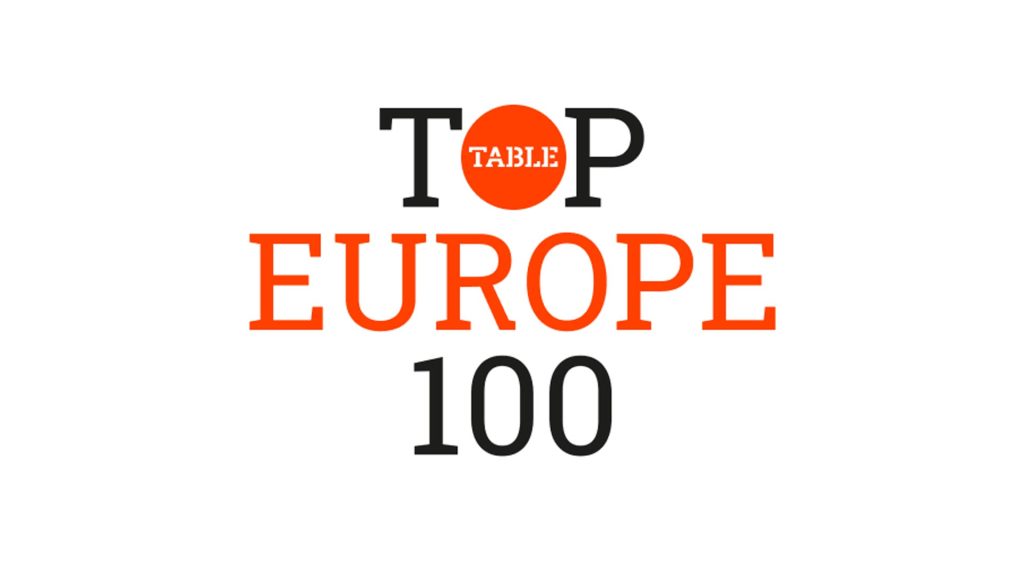Today is the day the AI Act clears its final hurdle: The ministers of the member states in the Telecommunications Council want to approve the Artificial Intelligence Act – without further debate. At least that is the plan. And this time, nothing is expected to go wrong. But who knows…
Digital Minister Volker Wissing and his colleagues, on the other hand, want to debate the Belgian draft Council conclusions on the future of EU digital policy. According to the paper, which Table.Media was able to view, the member states have a whole series of demands for the future EU Commission:
For example, the promotion of the EU’s digital sovereignty and technological independence. In order to increase strategic autonomy and resilience, investments in key technologies such as semiconductors, artificial intelligence, quantum computing and 6G are necessary.
They also want to see effective implementation and harmonization of digital legislation – just as the industry wants. The Commission should take measures to create synergies, avoid duplication of work and reduce the administrative burden, especially for SMEs and start-ups.
Finally, the Member States are calling for the development and implementation of digital technologies that can contribute to the green transformation to be promoted. The Commission should prioritize investments in digital and green technologies and ensure they contribute to achieving climate neutrality.
By the way, Federal Chancellor Olaf Scholz is also dealing with AI today. He is representing Germany at the virtual “Leaders’ Session” of the AI Seoul Summit, which follows on from last year’s AI Safety Summit in Bletchley, UK.
Have a good start to the week,

According to the European Commission, agriculture accounts for more than ten percent of the EU’s greenhouse gas emissions. The sector’s emissions have not decreased in the past two decades. Addressing these emissions in light of the EU’s climate goals could become a significant issue in the upcoming legislative period.
The main controversy is whether and how to include agriculture in the mandatory EU emissions trading system. Currently, agriculture is the only climate-relevant sector whose emissions are not subject to pricing. However, this topic is divisive, even within the European Commission.
On one side is the Directorate-General for Climate Action (CLIMA). Last year, it sparked the debate by commissioning a study on CO2 pricing in agriculture and its value chain. The study is also intended to contribute to the political discussion surrounding the 2040 climate goal, according to DG CLIMA upon its publication in November.
The Directorate-General for Agriculture and Rural Development (AGRI) takes a more cautious approach. AGRI Director-General Wolfgang Burtscher recently acknowledged at an event in Brussels that the pressure to reduce agricultural emissions is high and that the debate on CO2 pricing is gaining momentum. However, he argued that emissions could also be reduced through incremental measures incentivized by the Common Agricultural Policy (CAP).
So far, this has not worked: A 2021 report by the European Court of Auditors concluded that despite substantial funding, the CAP has hardly contributed to emission reductions. The debate is also likely to be influenced by the political climate around farmer protests. In February, the Commission significantly softened the section on agriculture in its recommendation for the 2040 climate goal compared to earlier drafts. The idea of a mandatory emissions trading system is unpopular in the industry.
The German Farmers’ Association (DBV) argues in a position paper that inclusion in the statutory emissions trading system is “not feasible” due to the structure of agriculture, the nature of emissions based on natural processes and administrative hurdles. Instead, the industry favors voluntary compensation for CO2 sinks and positive financial incentives for emission reductions. Similarly, Peter Liese, MEP and rapporteur on emissions trading, wants to emphasize the benefits for farmers.
Nonetheless, DG CLIMA is not giving up: It has commissioned a new study to be developed starting mid-year. The results could be ready in time for the plans for the 2040 climate goal to be translated into law after the election, including an impact assessment for a CO2 price in agriculture.
The debate on how to price agricultural emissions to apply the polluter-pays principle to agriculture, as demanded by the European Court of Auditors, is in full swing. One option would be a CO2 tax – the most direct form of CO2 pricing. However, this is considered difficult to implement due to national sovereignty over tax matters.
It is conceivable to include agriculture in the existing EU emissions trading system for industrial plants. The market and structure already exist and legal implementation would be relatively straightforward. However, the agricultural sector consists of over nine million farms with emissions of around 400 million tons of CO2 equivalents. The impact of their inclusion on price stability in the ETS would be difficult to calculate and potentially counterproductive for climate action.
The incentive for emission reductions in sectors already covered by the ETS could decrease due to falling prices, warns Hugh McDonald, a fellow at the Ecologic Institute and one of the authors of the first study on CO2 pricing in agriculture for DG CLIMA. “Looking ahead to 2050 maybe it makes sense to have one price to rule them all. But I think what we’re talking about at the moment is the next 10 to 15 years.”
Additionally, there should be benefits for farmers and landowners, says McDonald. “Otherwise, it will be difficult to enforce this policy.” He refers to the reward for carbon dioxide removal through land use, land-use change, and forestry (LULUCF). One possibility would be to link the pricing of emitted greenhouse gases with compensation for sequestered emissions.
Such a model would also address the demands of prominent economists and the European Court of Auditors to reward farmers for CO2 removal. And it seems Brussels is already considering this. The orders for the development of the two studies on an agricultural ETS came from the department within DG CLIMA responsible for CO2 removals, rather than the emissions trading experts.
The question is whether the two activities – emitting and removing – can be linked in a single system or need to be separated. McDonald believes that a separate system is more practical in the medium term. This way, there can be two distinct goals – one for emission reductions and one for CO2 removals. “The risk with a combined system is that it could be cheaper for farmers to buy low-quality removal certificates instead of reducing their own emissions.”
However, McDonald warns against focusing solely on an agricultural ETS. There are other political measures that are simpler and quicker to implement and thus more effective for reducing agricultural emissions. The economist still sees great potential in redesigning the 60 billion euros CAP subsidies as a climate action instrument. “Making changes in the Common Agricultural Policy is politically very difficult, but on a technical level we’ve already got a structure and all this money flowing into the scheme.”
A new system like an ETS, including compensation for CO2 removals, would have to compete with the vast sums from the CAP. Therefore, a redesign of the CAP would be inevitable if agricultural emissions are to be reduced, believes McDonald. This is also a task for the next legislative period: the Commission is expected to present initial ideas next year on what the CAP should look like after the current funding period ends. The current CAP runs until 2027 but could be extended.
The US tariff increase on Chinese electric car batteries will likely shift Chinese exports to Europe. Last week, President Biden announced additional tariffs on Chinese electric car batteries, battery parts, electric vehicles and solar panels to counteract the flood of cheap Chinese overcapacities.
Tariffs on electric car batteries have tripled to 25 percent. In 2026, tariffs on lithium-ion batteries used in other applications, such as energy storage systems, will also be increased. “If Europe does not follow suit with similar tariffs, Chinese batteries will become even cheaper for Europe because the overcapacities have to go somewhere,” says Dirk Uwe Sauer, a professor at RWTH Aachen, to Table.Briefings.
For European manufacturers, this means even more competition. “For the efforts of ACC, Northvolt and VW/PowerCo to produce their own batteries in Europe, this will be a particular burden,” says Sauer. The start-up of new factories will coincide with a period of absolute price competition, making it especially difficult for newcomers.
The battery market already has massive overcapacity. China alone has production capacities sufficient to meet global demand. The country dominates all steps of the supply chain. Experts warn that overcapacity could continue to rise as companies in Europe, the USA, and China continue to invest billions.
By the end of 2025, there could be 7.9 terawatt-hours of global battery production capacity, according to BloombergNEF (BNEF) analysts. However, demand will only be 1.6 terawatt-hours. Even if many of these new factories do not move beyond the planning stage, “the market is heading for an even greater oversupply,” write BNEF experts.
Other experts also believe that the new US tariffs “could drive Chinese batteries to Europe,” as battery expert Andy Leyland of consultancy Benchmark Minerals wrote on Twitter. Earlier this year, Leyland was more optimistic about Western battery manufacturers. “The order books of [Western] companies like Northvolt, LG Chem, and Panasonic are well filled for years,” he wrote.
According to him, China is “in a problematic situation”. The country must export its overcapacities in “Chinese electric cars, electronics and batteries for energy storage,” says Leyland. The market for energy storage systems will experience a significant additional supply of batteries to complement solar and wind storage. “This is a nice boost for the energy transition,” Leyland believes.
Batteries are considered one of the most important future technologies. They are seen as the “new oil” and a “master key” to accelerating the transformation of the energy and transportation systems. Countries leading in the battery sector could achieve “great industrial gains” in the future, according to a recent report by the International Energy Agency (IEA). Currently, China is still the leader in the battery industry. Europe, though still very dependent on China, is catching up thanks to government support and large investments.
Batteries are seen as a key technology for several reasons:
Currently, China dominates large parts of the battery supply chain:
The USA and Europe, however, are catching up and have established numerous factories in recent years. Many more are in the planning stage. According to the IEA, the USA and Europe could meet their battery demand with domestic production by 2030. According to the NGO Transport and Environment (T&E), this could be possible by 2026.
For critical components like cathodes and anodes, however, China’s dominance will likely continue, according to the IEA. T&E also criticizes that there are only two cathode factories in Europe, despite the continent’s potential to meet more than half of the demand through domestic production.
China’s market dominance is due to a long-term industrial policy and subsidies for battery manufacturers. Manufacturers in China are among the technological leaders and can produce large quantities at low prices due to lower energy and labor costs compared to Europe.
The success of European manufacturers in the market will also depend on politics. Europe has significant competitive disadvantages. In Europe, “both the capital expenditures (CAPEX) and operating costs (OPEX) for building and operating battery cell, component, and material factories” are particularly high, writes Transport and Environment. If Europe offered the same government support as the USA under the Inflation Reduction Act (IRA), the annual operating costs for battery factories alone would amount to 2.6 billion euros, the organization calculates.
However, there are other ways to support the industry: “Environmental, social, and governance standards will be crucial in determining market winners and losers,” writes the IEA. T&E calls for a secure investment environment and adherence to phasing out internal combustion engines. Additionally, investment aids at the EU level and “stronger ‘Made in EU‘ requirements for public procurement, subsidies, and EU grants and loans for EV and battery manufacturers” are needed.
May 23-25, 2024, Berlin (Germany)
EAB, Conference Navigating the crossroads: Europe’s struggle between activism and resignation
The European Academy Berlin (EAB) examines the complicated web of rapid social change in Europe. INFO & REGISTRATION
May 23-25, 2024, Florence (Italy)
EUI, Conference The State of the Union 2024
The European University Institute (EUI) tackles a range of key themes including future enlargements of the European Union, demography, democracy and the rule of law, industrial policy, as well as the digital and green transitions. INFO & REGISTRATION
May 23-24, 2024, Brussels (Belgium)
EU Agenda Annual Conference on EU Law in the Food Sector 2024
EU Agenda provides food law practitioners with an analysis of the recent legislation, case law and ongoing policy developments at EU level affecting the food sector. INFO & REGISTRATION
According to the Polish government, sanctions on the import of fossil Russian energy carriers into the EU should be implemented more quickly and effectively. This was stated by Urszula Zielińska, State Secretary from the Polish Ministry of Climate and Environment, on Friday at the German-Polish Energy Transition Forum at the Foreign Office in Berlin.
In particular, the green State Secretary criticized that the import of processed oil products such as diesel from Russian crude oil through third countries like India and Turkey is still possible. “Under these circumstances, the EU’s climate policy, with the shift away from coal, natural gas and oil towards clean energy sources, has taken on a new dimension,” said the deputy of Minister Paulina Hennig-Kloska. Zielińska accused Russia of conducting disinformation campaigns on climate policy in Poland, Germany, and other EU countries.
One topic for cooperation mentioned by Udo Philipp, State Secretary from the German Ministry of Economic Affairs, is the construction of offshore wind farms. Poland has more experience in building foundations than Germany: “Through our coordination, we could also use infrastructure such as ports and ships more efficiently.” Poland also has potentials for hydrogen storage and demand flexibility. Regarding the latter point, the BMWK has already launched an initiative with France to better integrate renewable energy generation peaks into the European electricity market. ber
To achieve the EU’s long-term climate goals, a carbon price is deemed more effective than regulatory climate action measures and subsidies guided by climate criteria. This is the outcome of a report by the Centre for European Policy (CEP). Emissions trading is considered environmentally effective, economically cost-efficient, socially acceptable, and politically stable even during crises.
Hence, the experts also recommend expanding the existing EU Emissions Trading System (ETS 1) for energy and industry to include the agricultural and land-use sectors (LULUCF). Additionally, ETS 1 should be merged with ETS 2 for building heating and transportation. While having two parallel systems might be sensible in the short term, it weakens incentives for emission reductions in the medium to long term due to different reduction paths and resulting carbon prices.
Moreover, the EU’s climate policy still lacks an effective and comprehensive system to prevent carbon leakage. The Fit-for-55 package does not ensure equal competitive conditions for European companies. European producers competing internationally will face a carbon price, while their international counterparts mostly will not. Therefore, resolving the carbon leakage dilemma should be “urgently placed at the top of the EU agenda for 2024-2029,” as advocated by CEP experts.
Unilateral trade measures like the Carbon Border Adjustment Mechanism (CBAM) are considered only the “second-best” solution and may even prove counterproductive. CBAM could be circumvented by importing processed products not covered by CBAM instead of raw materials subject to it. Instead, the EU should pursue multilateral solutions, such as international climate clubs or joint emissions trading systems with third countries. luk
Data from networked devices can promote product development, reduce costs and enable new business models. Despite the great economic potential, data sharing is still not very widespread among German companies. This is the result of a study by the Leibniz Centre for European Economic Research Mannheim (ZEW).
The study is based on a survey of 1,400 companies from the manufacturing industry and the information economy. The authors asked companies about their plans for data sharing and possible incentives.
Companies that already store a variety of data types digitally and consider data to be important for their business model are more willing to share data. Larger companies are also more open to data sharing.
In a kind of experiment within the survey, the authors examined three incentive scenarios that would actually be able to make data sharing more attractive for companies:
The study does not examine the significance of data spaces and regulatory sandboxes (real-world laboratories) for data sharing. “My general assessment, however, is that data spaces and real-world laboratories are important factors that support data sharing by companies and can contribute to an increase in its use,” said Daniel Erdsieck, Senior Researcher at ZEW Table.Briefing.
However, this also depends on the specific use case. For example, companies could share data in a legally secure manner based on corresponding license agreements without having to resort to real-world laboratories. “In innovative use cases, however, real-world laboratories could increase companies’ willingness to experiment,” said Daniel Erdsiek. vis
The European Commission is stepping up its action against Microsoft. It has asked the company to provide further information on the risks of Bing’s generative AI functions. Following an initial request in March, Microsoft must now provide detailed data and internal documents by May 27. This request relates in particular to the AI functions “Copilot in Bing” and “Image Creator by Designer.” According to the Commission, these may harbor considerable risks.
The background to this measure is the Digital Services Act (DSA). It requires online services such as Bing to carry out a comprehensive risk assessment and take appropriate protective measures. The Commission suspects that Bing may have breached these provisions. According to the Commission, generative AI systems such as Bing’s are particularly problematic as they can promote phenomena such as “hallucinations,” the viral spread of deepfakes and the automated manipulation of services that may mislead voters.
If Microsoft fails to provide the required information on time, it could face severe penalties. Bing, as one of the largest online search engines (VLOP), must comply with the full provisions of the DSA. The Commission sees potential risks to civil discourse and the integrity of the electoral process in the suspected violations of the DSA. Should Microsoft fail to comply with the requirements, the Commission reserves the right to initiate formal proceedings. vis
CSU Chairman and Bavarian Minister President Markus Söder expects the new EU Commission to reverse the ban on the combustion engine. “Today’s combustion engines are different to those of ten or 20 years ago,” said Söder in the Table.Today podcast from Table.Briefings. “Well over 90 percent of cars worldwide are still powered by combustion engines. We would be unwise and stupid if we didn’t lift the ban.”
Söder called the European elections a “fateful election.” The European Union is under pressure and needs reforms, said the CSU leader. Germany must take on more responsibility. “An overly strong Germany in Europe is annoying to some, but a weak Germany worries Europeans.” The principle of unanimity in foreign and security policy must be reformed so that “not one person can block everything,” said Söder. Another problem is that the Franco-German engine is not running smoothly, he said.
Söder left open whether Ursula von der Leyen (CDU), the European Conservatives’ candidate for Commission President, should be elected in Parliament by right-wing populist parties such as Giorgia Meloni’s Fratelli d’Italia rather than the Greens. “You can’t say that today. First, there are elections, then it’s a question for the heads of state. Green ideology will not get us ahead in Europe. We want stability in the European Parliament – with a clear non-dependence on traffic light parties, especially the Greens.” Michael Bröcker
Following the death of Iranian President Ebrahim Raisi, representatives of the EU have expressed their condolences. “The EU expresses its sincere condolences for the death of President Raisi and Foreign Minister Abdollahian and other members of their delegation and crew in a helicopter accident,” wrote EU Council President Charles Michel on his official account on X on Monday. “Our thoughts go to the families.”
Foreign Affairs Commissioner Josep Borrell expressed similar sentiments. “sympathies to the families of all the victims and to the Iranian citizens affected,” it said in a brief statement.
Raisi and Iranian Foreign Minister Hussein Amirabdollahian were killed in a helicopter crash on Sunday. Raisi was President of Iran for almost three years. In his former function as public prosecutor, he is said to have been responsible for numerous arrests and executions of political dissidents in 1988, which is why his opponents nicknamed him the “Butcher of Tehran.”
The EU extended its previous sanctions against Iran just last week. The background to this is in particular the major Iranian attack on Israel with drones and missiles in mid-April, which followed a suspected Israeli attack on the Iranian embassy in the Syrian capital Damascus. The EU has also imposed sanctions against the country for serious human rights violations. dpa


Funda Tekin – Director Institute for European Politics
As Director of the Institute for European Politics in Berlin, Funda Tekin works intensively on European integration. Tekin also contributes her expertise to the political process, for example as a member of the Franco-German expert group on institutional reforms of the EU. The honorary professor at the University of Tübingen has also published extensively on relations between the EU and Turkey.

Franz Mayer – Professor of European Law, Bielefeld University:
The lawyer at Bielefeld University is probably the most respected expert on European law in Germany. He has represented the Bundestag and the Federal Government in several proceedings before the Federal Constitutional Court, including the Treaty of Lisbon. Mayer was also a member of the Franco-German group of experts that presented proposals for institutional reforms of the EU last fall.

Patrizia Nanz – President of the European University Institute
Political scientist Patrizia Nanz has been President of the European University Institute in Florence since March 2024. She was previously the Founding ´Director of the Franco-German Institution for the Future, which was established in the 2019 Aachen Treaty, and built it as a dialog forum for socio-ecological transformations. Nanz is an expert on democratic co-determination and modern administration.

Thomas Biebricher – Professor of Political Science, Goethe University Frankfurt
The Heisenberg Professor of Political Science has written a book on the crisis of moderate conservatism in European countries, which has been read and discussed in the ranks of the Christian Democrats. He is also frequently present in the media as an expert on the demarcation between the center-right parties and the far-right.

Christian Calliess – Professor of Law, Free University of Berlin
The European and environmental law expert teaches at the Free University of Berlin and holds a Jean Monnet Chair. He advised the EU Commission’s think tank for three years and is also frequently consulted as an expert.

Sandra Wachter – Professor of Technology and Regulation, University of Oxford
At the Oxford Internet Institute at the University of Oxford, Sandra Wachter researches the legal and ethical implications of AI, big data and robotics, as well as the regulation of the internet and platforms. Her current research focuses include profiling, inferential analytics and explainable AI. She is also dedicated to questions of algorithmic bias, diversity and fairness.

Lutz Eckstein – Head of the Institute for Motor Vehicles, RWTH Aachen University
If there is one university professor in Germany who deserves the epithet “car,” it is Lutz Eckstein. He has headed the Institute of Automotive Engineering at RWTH Aachen University since 2010. He has been President of the Association of German Engineers since 2023. Before his academic career, he was a development engineer at Mercedes and BMW.

Philipp Hacker – Professor of Law, European University Viadrina
Philipp Hacker has held the Chair of Law and Ethics of the Digital Society at the European University Viadrina in Frankfurt (Oder) since 2020. In addition to the Faculty of Law, he is also a research professor at the European New School of Digital Studies (ENS). With Sarah Hammer, he founded the international consortium of experts on the regulation, economics and informatics of AI (RECSAI), which he heads today. He has worked as a consultant for the German government and the European Parliament.

Thomas Schildhauer – Research and Founding Director of the HIIG
As Research and Founding Director of the Alexander von Humboldt Institute for Internet and Society (HIIG), Thomas Schildhauer has also taken over the scientific management of the Innovation, Entrepreneurship & Society research group. He is a computer scientist, holds a PhD in public health and marketing, is an internet researcher and a Professor of Electronic Business at the Berlin University of the Arts.

Ludger Kühnhardt – Director at the Center for European Integration Studies Bonn
He specializes in European integration and Europe’s role in the world. The trained journalist and qualified political scientist teaches at Bonn University and has been Director of the Center for European Integration Research since 1997. He was a research assistant to Karl Dietrich Bracher and speechwriter to German Federal President Richard von Weizsäcker.
Today is the day the AI Act clears its final hurdle: The ministers of the member states in the Telecommunications Council want to approve the Artificial Intelligence Act – without further debate. At least that is the plan. And this time, nothing is expected to go wrong. But who knows…
Digital Minister Volker Wissing and his colleagues, on the other hand, want to debate the Belgian draft Council conclusions on the future of EU digital policy. According to the paper, which Table.Media was able to view, the member states have a whole series of demands for the future EU Commission:
For example, the promotion of the EU’s digital sovereignty and technological independence. In order to increase strategic autonomy and resilience, investments in key technologies such as semiconductors, artificial intelligence, quantum computing and 6G are necessary.
They also want to see effective implementation and harmonization of digital legislation – just as the industry wants. The Commission should take measures to create synergies, avoid duplication of work and reduce the administrative burden, especially for SMEs and start-ups.
Finally, the Member States are calling for the development and implementation of digital technologies that can contribute to the green transformation to be promoted. The Commission should prioritize investments in digital and green technologies and ensure they contribute to achieving climate neutrality.
By the way, Federal Chancellor Olaf Scholz is also dealing with AI today. He is representing Germany at the virtual “Leaders’ Session” of the AI Seoul Summit, which follows on from last year’s AI Safety Summit in Bletchley, UK.
Have a good start to the week,

According to the European Commission, agriculture accounts for more than ten percent of the EU’s greenhouse gas emissions. The sector’s emissions have not decreased in the past two decades. Addressing these emissions in light of the EU’s climate goals could become a significant issue in the upcoming legislative period.
The main controversy is whether and how to include agriculture in the mandatory EU emissions trading system. Currently, agriculture is the only climate-relevant sector whose emissions are not subject to pricing. However, this topic is divisive, even within the European Commission.
On one side is the Directorate-General for Climate Action (CLIMA). Last year, it sparked the debate by commissioning a study on CO2 pricing in agriculture and its value chain. The study is also intended to contribute to the political discussion surrounding the 2040 climate goal, according to DG CLIMA upon its publication in November.
The Directorate-General for Agriculture and Rural Development (AGRI) takes a more cautious approach. AGRI Director-General Wolfgang Burtscher recently acknowledged at an event in Brussels that the pressure to reduce agricultural emissions is high and that the debate on CO2 pricing is gaining momentum. However, he argued that emissions could also be reduced through incremental measures incentivized by the Common Agricultural Policy (CAP).
So far, this has not worked: A 2021 report by the European Court of Auditors concluded that despite substantial funding, the CAP has hardly contributed to emission reductions. The debate is also likely to be influenced by the political climate around farmer protests. In February, the Commission significantly softened the section on agriculture in its recommendation for the 2040 climate goal compared to earlier drafts. The idea of a mandatory emissions trading system is unpopular in the industry.
The German Farmers’ Association (DBV) argues in a position paper that inclusion in the statutory emissions trading system is “not feasible” due to the structure of agriculture, the nature of emissions based on natural processes and administrative hurdles. Instead, the industry favors voluntary compensation for CO2 sinks and positive financial incentives for emission reductions. Similarly, Peter Liese, MEP and rapporteur on emissions trading, wants to emphasize the benefits for farmers.
Nonetheless, DG CLIMA is not giving up: It has commissioned a new study to be developed starting mid-year. The results could be ready in time for the plans for the 2040 climate goal to be translated into law after the election, including an impact assessment for a CO2 price in agriculture.
The debate on how to price agricultural emissions to apply the polluter-pays principle to agriculture, as demanded by the European Court of Auditors, is in full swing. One option would be a CO2 tax – the most direct form of CO2 pricing. However, this is considered difficult to implement due to national sovereignty over tax matters.
It is conceivable to include agriculture in the existing EU emissions trading system for industrial plants. The market and structure already exist and legal implementation would be relatively straightforward. However, the agricultural sector consists of over nine million farms with emissions of around 400 million tons of CO2 equivalents. The impact of their inclusion on price stability in the ETS would be difficult to calculate and potentially counterproductive for climate action.
The incentive for emission reductions in sectors already covered by the ETS could decrease due to falling prices, warns Hugh McDonald, a fellow at the Ecologic Institute and one of the authors of the first study on CO2 pricing in agriculture for DG CLIMA. “Looking ahead to 2050 maybe it makes sense to have one price to rule them all. But I think what we’re talking about at the moment is the next 10 to 15 years.”
Additionally, there should be benefits for farmers and landowners, says McDonald. “Otherwise, it will be difficult to enforce this policy.” He refers to the reward for carbon dioxide removal through land use, land-use change, and forestry (LULUCF). One possibility would be to link the pricing of emitted greenhouse gases with compensation for sequestered emissions.
Such a model would also address the demands of prominent economists and the European Court of Auditors to reward farmers for CO2 removal. And it seems Brussels is already considering this. The orders for the development of the two studies on an agricultural ETS came from the department within DG CLIMA responsible for CO2 removals, rather than the emissions trading experts.
The question is whether the two activities – emitting and removing – can be linked in a single system or need to be separated. McDonald believes that a separate system is more practical in the medium term. This way, there can be two distinct goals – one for emission reductions and one for CO2 removals. “The risk with a combined system is that it could be cheaper for farmers to buy low-quality removal certificates instead of reducing their own emissions.”
However, McDonald warns against focusing solely on an agricultural ETS. There are other political measures that are simpler and quicker to implement and thus more effective for reducing agricultural emissions. The economist still sees great potential in redesigning the 60 billion euros CAP subsidies as a climate action instrument. “Making changes in the Common Agricultural Policy is politically very difficult, but on a technical level we’ve already got a structure and all this money flowing into the scheme.”
A new system like an ETS, including compensation for CO2 removals, would have to compete with the vast sums from the CAP. Therefore, a redesign of the CAP would be inevitable if agricultural emissions are to be reduced, believes McDonald. This is also a task for the next legislative period: the Commission is expected to present initial ideas next year on what the CAP should look like after the current funding period ends. The current CAP runs until 2027 but could be extended.
The US tariff increase on Chinese electric car batteries will likely shift Chinese exports to Europe. Last week, President Biden announced additional tariffs on Chinese electric car batteries, battery parts, electric vehicles and solar panels to counteract the flood of cheap Chinese overcapacities.
Tariffs on electric car batteries have tripled to 25 percent. In 2026, tariffs on lithium-ion batteries used in other applications, such as energy storage systems, will also be increased. “If Europe does not follow suit with similar tariffs, Chinese batteries will become even cheaper for Europe because the overcapacities have to go somewhere,” says Dirk Uwe Sauer, a professor at RWTH Aachen, to Table.Briefings.
For European manufacturers, this means even more competition. “For the efforts of ACC, Northvolt and VW/PowerCo to produce their own batteries in Europe, this will be a particular burden,” says Sauer. The start-up of new factories will coincide with a period of absolute price competition, making it especially difficult for newcomers.
The battery market already has massive overcapacity. China alone has production capacities sufficient to meet global demand. The country dominates all steps of the supply chain. Experts warn that overcapacity could continue to rise as companies in Europe, the USA, and China continue to invest billions.
By the end of 2025, there could be 7.9 terawatt-hours of global battery production capacity, according to BloombergNEF (BNEF) analysts. However, demand will only be 1.6 terawatt-hours. Even if many of these new factories do not move beyond the planning stage, “the market is heading for an even greater oversupply,” write BNEF experts.
Other experts also believe that the new US tariffs “could drive Chinese batteries to Europe,” as battery expert Andy Leyland of consultancy Benchmark Minerals wrote on Twitter. Earlier this year, Leyland was more optimistic about Western battery manufacturers. “The order books of [Western] companies like Northvolt, LG Chem, and Panasonic are well filled for years,” he wrote.
According to him, China is “in a problematic situation”. The country must export its overcapacities in “Chinese electric cars, electronics and batteries for energy storage,” says Leyland. The market for energy storage systems will experience a significant additional supply of batteries to complement solar and wind storage. “This is a nice boost for the energy transition,” Leyland believes.
Batteries are considered one of the most important future technologies. They are seen as the “new oil” and a “master key” to accelerating the transformation of the energy and transportation systems. Countries leading in the battery sector could achieve “great industrial gains” in the future, according to a recent report by the International Energy Agency (IEA). Currently, China is still the leader in the battery industry. Europe, though still very dependent on China, is catching up thanks to government support and large investments.
Batteries are seen as a key technology for several reasons:
Currently, China dominates large parts of the battery supply chain:
The USA and Europe, however, are catching up and have established numerous factories in recent years. Many more are in the planning stage. According to the IEA, the USA and Europe could meet their battery demand with domestic production by 2030. According to the NGO Transport and Environment (T&E), this could be possible by 2026.
For critical components like cathodes and anodes, however, China’s dominance will likely continue, according to the IEA. T&E also criticizes that there are only two cathode factories in Europe, despite the continent’s potential to meet more than half of the demand through domestic production.
China’s market dominance is due to a long-term industrial policy and subsidies for battery manufacturers. Manufacturers in China are among the technological leaders and can produce large quantities at low prices due to lower energy and labor costs compared to Europe.
The success of European manufacturers in the market will also depend on politics. Europe has significant competitive disadvantages. In Europe, “both the capital expenditures (CAPEX) and operating costs (OPEX) for building and operating battery cell, component, and material factories” are particularly high, writes Transport and Environment. If Europe offered the same government support as the USA under the Inflation Reduction Act (IRA), the annual operating costs for battery factories alone would amount to 2.6 billion euros, the organization calculates.
However, there are other ways to support the industry: “Environmental, social, and governance standards will be crucial in determining market winners and losers,” writes the IEA. T&E calls for a secure investment environment and adherence to phasing out internal combustion engines. Additionally, investment aids at the EU level and “stronger ‘Made in EU‘ requirements for public procurement, subsidies, and EU grants and loans for EV and battery manufacturers” are needed.
May 23-25, 2024, Berlin (Germany)
EAB, Conference Navigating the crossroads: Europe’s struggle between activism and resignation
The European Academy Berlin (EAB) examines the complicated web of rapid social change in Europe. INFO & REGISTRATION
May 23-25, 2024, Florence (Italy)
EUI, Conference The State of the Union 2024
The European University Institute (EUI) tackles a range of key themes including future enlargements of the European Union, demography, democracy and the rule of law, industrial policy, as well as the digital and green transitions. INFO & REGISTRATION
May 23-24, 2024, Brussels (Belgium)
EU Agenda Annual Conference on EU Law in the Food Sector 2024
EU Agenda provides food law practitioners with an analysis of the recent legislation, case law and ongoing policy developments at EU level affecting the food sector. INFO & REGISTRATION
According to the Polish government, sanctions on the import of fossil Russian energy carriers into the EU should be implemented more quickly and effectively. This was stated by Urszula Zielińska, State Secretary from the Polish Ministry of Climate and Environment, on Friday at the German-Polish Energy Transition Forum at the Foreign Office in Berlin.
In particular, the green State Secretary criticized that the import of processed oil products such as diesel from Russian crude oil through third countries like India and Turkey is still possible. “Under these circumstances, the EU’s climate policy, with the shift away from coal, natural gas and oil towards clean energy sources, has taken on a new dimension,” said the deputy of Minister Paulina Hennig-Kloska. Zielińska accused Russia of conducting disinformation campaigns on climate policy in Poland, Germany, and other EU countries.
One topic for cooperation mentioned by Udo Philipp, State Secretary from the German Ministry of Economic Affairs, is the construction of offshore wind farms. Poland has more experience in building foundations than Germany: “Through our coordination, we could also use infrastructure such as ports and ships more efficiently.” Poland also has potentials for hydrogen storage and demand flexibility. Regarding the latter point, the BMWK has already launched an initiative with France to better integrate renewable energy generation peaks into the European electricity market. ber
To achieve the EU’s long-term climate goals, a carbon price is deemed more effective than regulatory climate action measures and subsidies guided by climate criteria. This is the outcome of a report by the Centre for European Policy (CEP). Emissions trading is considered environmentally effective, economically cost-efficient, socially acceptable, and politically stable even during crises.
Hence, the experts also recommend expanding the existing EU Emissions Trading System (ETS 1) for energy and industry to include the agricultural and land-use sectors (LULUCF). Additionally, ETS 1 should be merged with ETS 2 for building heating and transportation. While having two parallel systems might be sensible in the short term, it weakens incentives for emission reductions in the medium to long term due to different reduction paths and resulting carbon prices.
Moreover, the EU’s climate policy still lacks an effective and comprehensive system to prevent carbon leakage. The Fit-for-55 package does not ensure equal competitive conditions for European companies. European producers competing internationally will face a carbon price, while their international counterparts mostly will not. Therefore, resolving the carbon leakage dilemma should be “urgently placed at the top of the EU agenda for 2024-2029,” as advocated by CEP experts.
Unilateral trade measures like the Carbon Border Adjustment Mechanism (CBAM) are considered only the “second-best” solution and may even prove counterproductive. CBAM could be circumvented by importing processed products not covered by CBAM instead of raw materials subject to it. Instead, the EU should pursue multilateral solutions, such as international climate clubs or joint emissions trading systems with third countries. luk
Data from networked devices can promote product development, reduce costs and enable new business models. Despite the great economic potential, data sharing is still not very widespread among German companies. This is the result of a study by the Leibniz Centre for European Economic Research Mannheim (ZEW).
The study is based on a survey of 1,400 companies from the manufacturing industry and the information economy. The authors asked companies about their plans for data sharing and possible incentives.
Companies that already store a variety of data types digitally and consider data to be important for their business model are more willing to share data. Larger companies are also more open to data sharing.
In a kind of experiment within the survey, the authors examined three incentive scenarios that would actually be able to make data sharing more attractive for companies:
The study does not examine the significance of data spaces and regulatory sandboxes (real-world laboratories) for data sharing. “My general assessment, however, is that data spaces and real-world laboratories are important factors that support data sharing by companies and can contribute to an increase in its use,” said Daniel Erdsieck, Senior Researcher at ZEW Table.Briefing.
However, this also depends on the specific use case. For example, companies could share data in a legally secure manner based on corresponding license agreements without having to resort to real-world laboratories. “In innovative use cases, however, real-world laboratories could increase companies’ willingness to experiment,” said Daniel Erdsiek. vis
The European Commission is stepping up its action against Microsoft. It has asked the company to provide further information on the risks of Bing’s generative AI functions. Following an initial request in March, Microsoft must now provide detailed data and internal documents by May 27. This request relates in particular to the AI functions “Copilot in Bing” and “Image Creator by Designer.” According to the Commission, these may harbor considerable risks.
The background to this measure is the Digital Services Act (DSA). It requires online services such as Bing to carry out a comprehensive risk assessment and take appropriate protective measures. The Commission suspects that Bing may have breached these provisions. According to the Commission, generative AI systems such as Bing’s are particularly problematic as they can promote phenomena such as “hallucinations,” the viral spread of deepfakes and the automated manipulation of services that may mislead voters.
If Microsoft fails to provide the required information on time, it could face severe penalties. Bing, as one of the largest online search engines (VLOP), must comply with the full provisions of the DSA. The Commission sees potential risks to civil discourse and the integrity of the electoral process in the suspected violations of the DSA. Should Microsoft fail to comply with the requirements, the Commission reserves the right to initiate formal proceedings. vis
CSU Chairman and Bavarian Minister President Markus Söder expects the new EU Commission to reverse the ban on the combustion engine. “Today’s combustion engines are different to those of ten or 20 years ago,” said Söder in the Table.Today podcast from Table.Briefings. “Well over 90 percent of cars worldwide are still powered by combustion engines. We would be unwise and stupid if we didn’t lift the ban.”
Söder called the European elections a “fateful election.” The European Union is under pressure and needs reforms, said the CSU leader. Germany must take on more responsibility. “An overly strong Germany in Europe is annoying to some, but a weak Germany worries Europeans.” The principle of unanimity in foreign and security policy must be reformed so that “not one person can block everything,” said Söder. Another problem is that the Franco-German engine is not running smoothly, he said.
Söder left open whether Ursula von der Leyen (CDU), the European Conservatives’ candidate for Commission President, should be elected in Parliament by right-wing populist parties such as Giorgia Meloni’s Fratelli d’Italia rather than the Greens. “You can’t say that today. First, there are elections, then it’s a question for the heads of state. Green ideology will not get us ahead in Europe. We want stability in the European Parliament – with a clear non-dependence on traffic light parties, especially the Greens.” Michael Bröcker
Following the death of Iranian President Ebrahim Raisi, representatives of the EU have expressed their condolences. “The EU expresses its sincere condolences for the death of President Raisi and Foreign Minister Abdollahian and other members of their delegation and crew in a helicopter accident,” wrote EU Council President Charles Michel on his official account on X on Monday. “Our thoughts go to the families.”
Foreign Affairs Commissioner Josep Borrell expressed similar sentiments. “sympathies to the families of all the victims and to the Iranian citizens affected,” it said in a brief statement.
Raisi and Iranian Foreign Minister Hussein Amirabdollahian were killed in a helicopter crash on Sunday. Raisi was President of Iran for almost three years. In his former function as public prosecutor, he is said to have been responsible for numerous arrests and executions of political dissidents in 1988, which is why his opponents nicknamed him the “Butcher of Tehran.”
The EU extended its previous sanctions against Iran just last week. The background to this is in particular the major Iranian attack on Israel with drones and missiles in mid-April, which followed a suspected Israeli attack on the Iranian embassy in the Syrian capital Damascus. The EU has also imposed sanctions against the country for serious human rights violations. dpa


Funda Tekin – Director Institute for European Politics
As Director of the Institute for European Politics in Berlin, Funda Tekin works intensively on European integration. Tekin also contributes her expertise to the political process, for example as a member of the Franco-German expert group on institutional reforms of the EU. The honorary professor at the University of Tübingen has also published extensively on relations between the EU and Turkey.

Franz Mayer – Professor of European Law, Bielefeld University:
The lawyer at Bielefeld University is probably the most respected expert on European law in Germany. He has represented the Bundestag and the Federal Government in several proceedings before the Federal Constitutional Court, including the Treaty of Lisbon. Mayer was also a member of the Franco-German group of experts that presented proposals for institutional reforms of the EU last fall.

Patrizia Nanz – President of the European University Institute
Political scientist Patrizia Nanz has been President of the European University Institute in Florence since March 2024. She was previously the Founding ´Director of the Franco-German Institution for the Future, which was established in the 2019 Aachen Treaty, and built it as a dialog forum for socio-ecological transformations. Nanz is an expert on democratic co-determination and modern administration.

Thomas Biebricher – Professor of Political Science, Goethe University Frankfurt
The Heisenberg Professor of Political Science has written a book on the crisis of moderate conservatism in European countries, which has been read and discussed in the ranks of the Christian Democrats. He is also frequently present in the media as an expert on the demarcation between the center-right parties and the far-right.

Christian Calliess – Professor of Law, Free University of Berlin
The European and environmental law expert teaches at the Free University of Berlin and holds a Jean Monnet Chair. He advised the EU Commission’s think tank for three years and is also frequently consulted as an expert.

Sandra Wachter – Professor of Technology and Regulation, University of Oxford
At the Oxford Internet Institute at the University of Oxford, Sandra Wachter researches the legal and ethical implications of AI, big data and robotics, as well as the regulation of the internet and platforms. Her current research focuses include profiling, inferential analytics and explainable AI. She is also dedicated to questions of algorithmic bias, diversity and fairness.

Lutz Eckstein – Head of the Institute for Motor Vehicles, RWTH Aachen University
If there is one university professor in Germany who deserves the epithet “car,” it is Lutz Eckstein. He has headed the Institute of Automotive Engineering at RWTH Aachen University since 2010. He has been President of the Association of German Engineers since 2023. Before his academic career, he was a development engineer at Mercedes and BMW.

Philipp Hacker – Professor of Law, European University Viadrina
Philipp Hacker has held the Chair of Law and Ethics of the Digital Society at the European University Viadrina in Frankfurt (Oder) since 2020. In addition to the Faculty of Law, he is also a research professor at the European New School of Digital Studies (ENS). With Sarah Hammer, he founded the international consortium of experts on the regulation, economics and informatics of AI (RECSAI), which he heads today. He has worked as a consultant for the German government and the European Parliament.

Thomas Schildhauer – Research and Founding Director of the HIIG
As Research and Founding Director of the Alexander von Humboldt Institute for Internet and Society (HIIG), Thomas Schildhauer has also taken over the scientific management of the Innovation, Entrepreneurship & Society research group. He is a computer scientist, holds a PhD in public health and marketing, is an internet researcher and a Professor of Electronic Business at the Berlin University of the Arts.

Ludger Kühnhardt – Director at the Center for European Integration Studies Bonn
He specializes in European integration and Europe’s role in the world. The trained journalist and qualified political scientist teaches at Bonn University and has been Director of the Center for European Integration Research since 1997. He was a research assistant to Karl Dietrich Bracher and speechwriter to German Federal President Richard von Weizsäcker.
